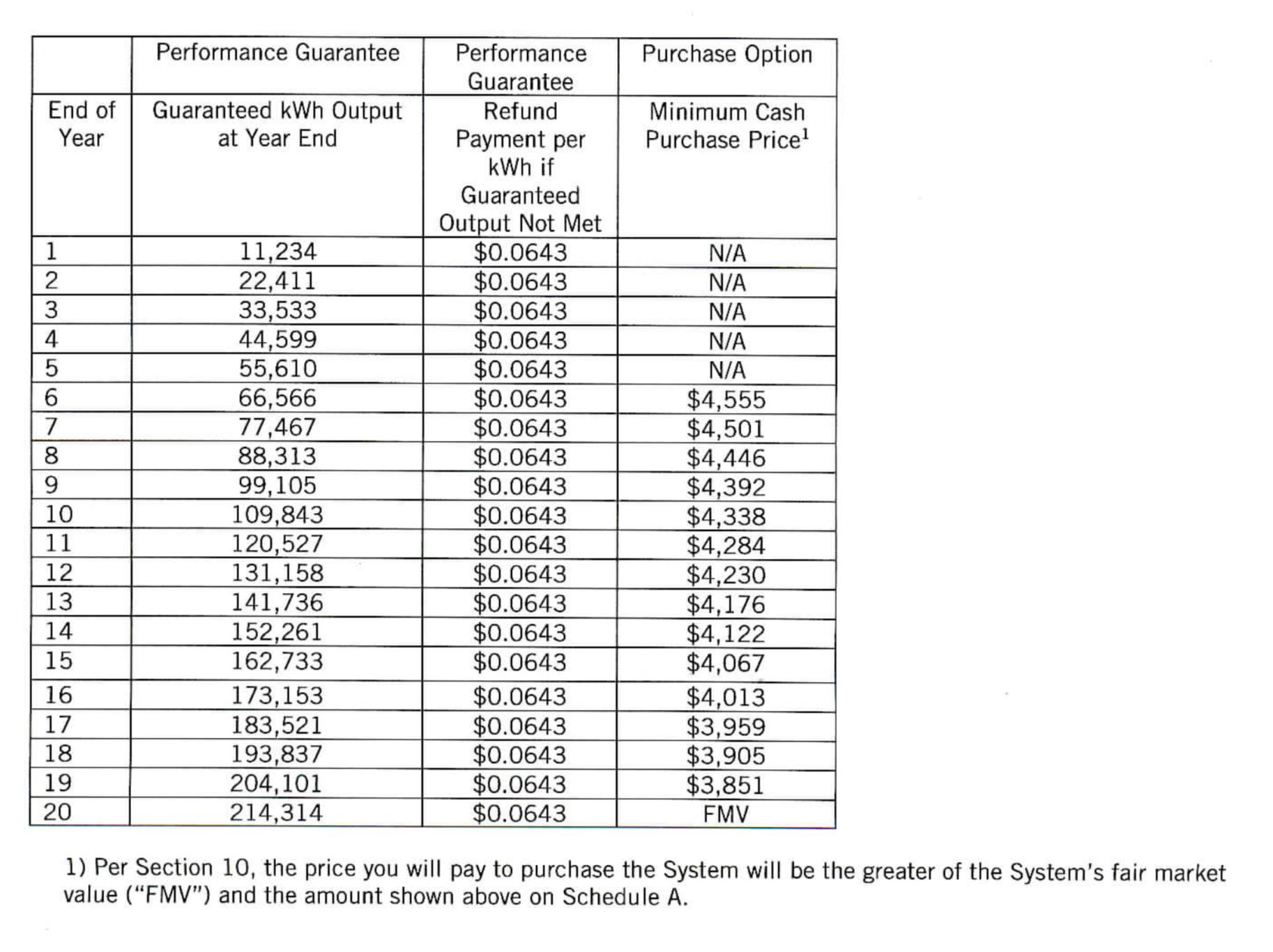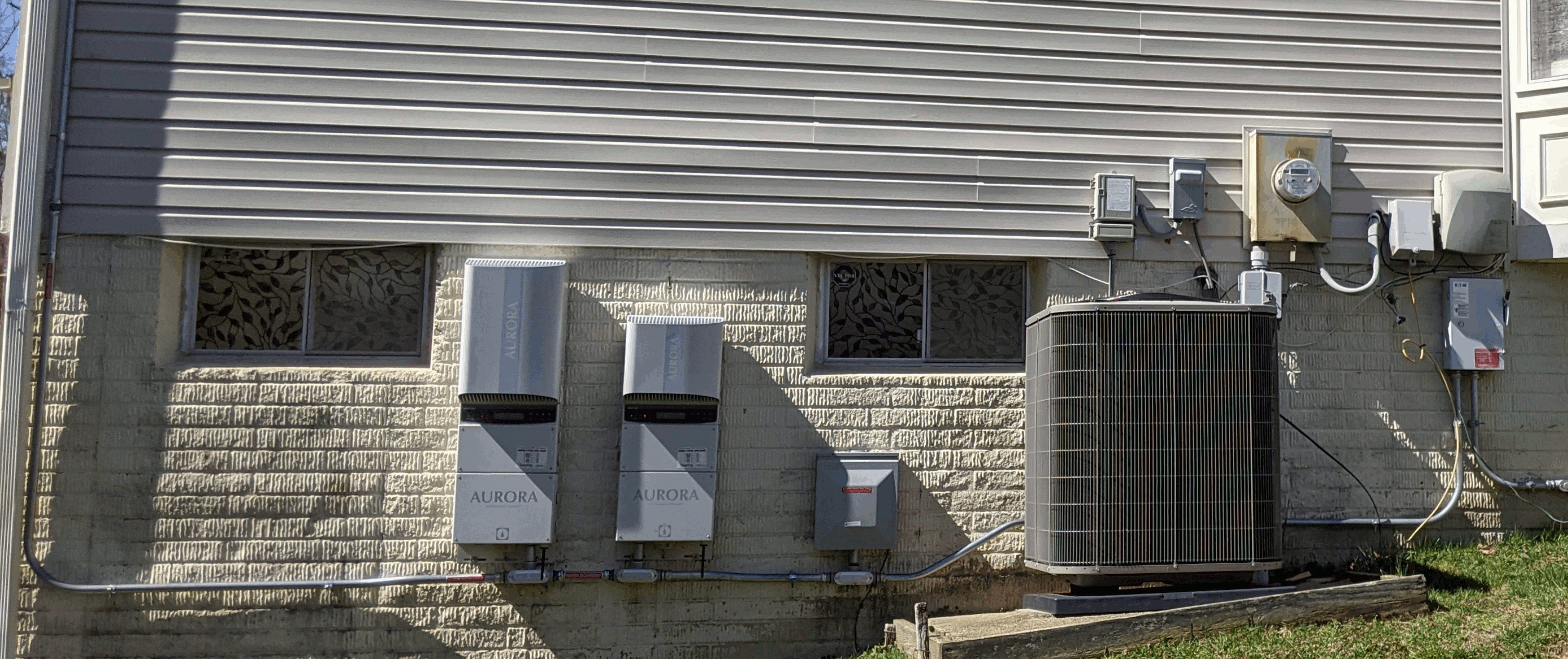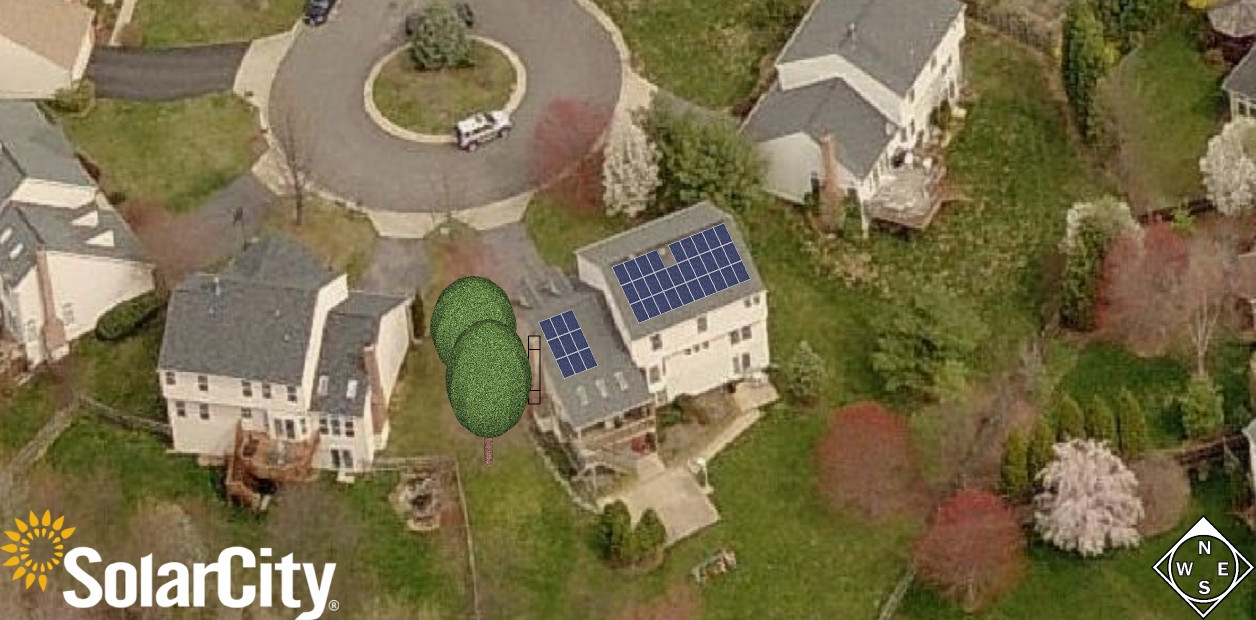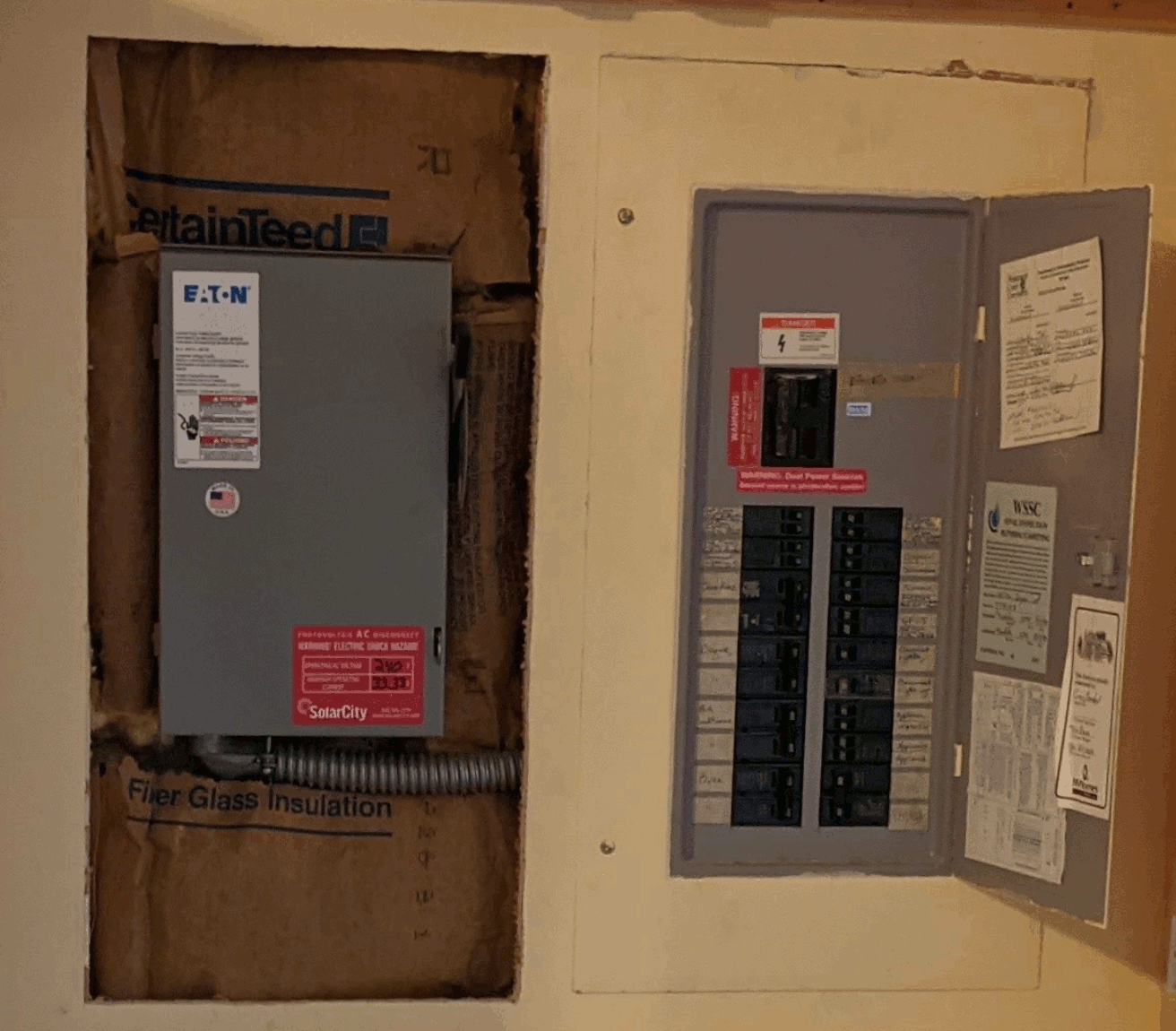I live in the Maryland suburbs of Washington DC. On December 31, 2012, I signed a lease deal with SolarCity (now Tesla) to install solar panels on the roof of my home + associated electrical infrastructure. I would pay $0 down, I would lease the system for 20 years and I would pay SolarCity/Tesla to purchase the electricity it produced.
The contract I signed at that time had a buyout clause where I could purchase the solar-system outright for a lump sum after five years. This lump sum was described in the contract as follows:
[T]he price you will pay for the System will be the greater of the System's fair market value ("FMV") and the amount shown on Schedule A. The interests of any financing party shall not be taken into account when determining the FMV; a third party independent appraiser will be retained to compute the System's FMV.
Below is a screenshot of Schedule A.

Based on Schedule A, my payoff amount should currently be the maximum of $4446 and the FMV of the Solar System. I asked Tesla to provide me the payoff amount and yesterday they told me it is $12,557.07.
I'm very surprised at the large number they have quoted and am wondering if it is legitimate. What is the FMV of my solar system and how can I verify if the number they provided me is actually FMV or a wildly inflated figure? To help you answer this question, I have provided multiple images and supporting links below.
Here is a mock-up images of my roof provided by SolarCity before installation. What they installed matches this mockup. You can see that they installed 38 panels. Here is the datasheet of each panel.
On the side of my house they have installed two large Aurora inverter boxes and some associated cabling etc. Here are the links to those two inverters: Inverter #1, Inverter #2. This is what they look like from far:  .
.
Inside my basement, next to the main breaker switch, Solar City installed this box:
So what is the Fair Market Value of these items?

